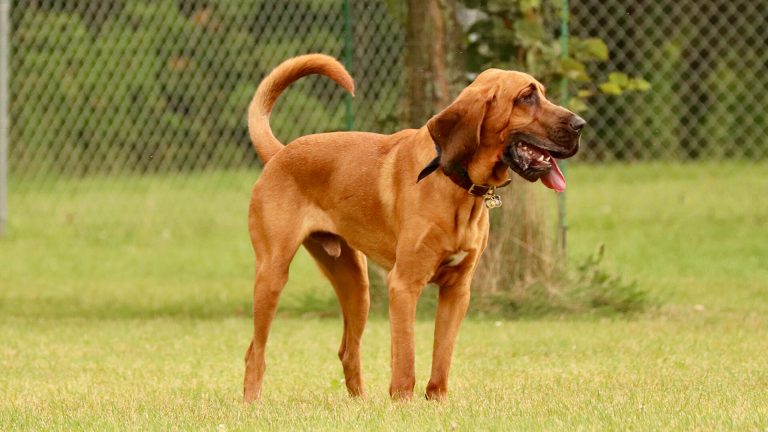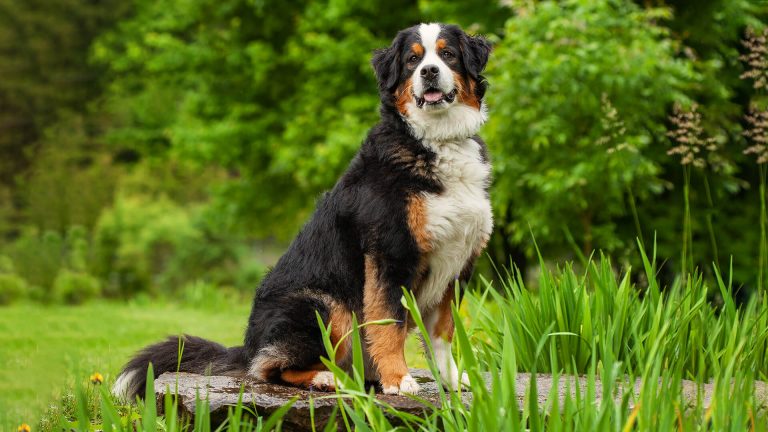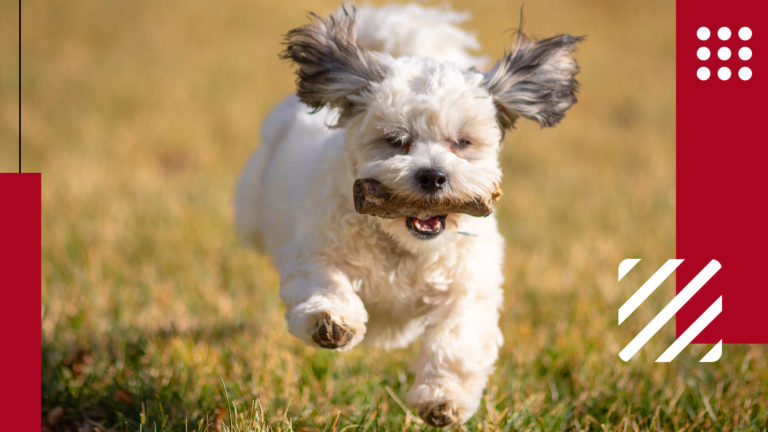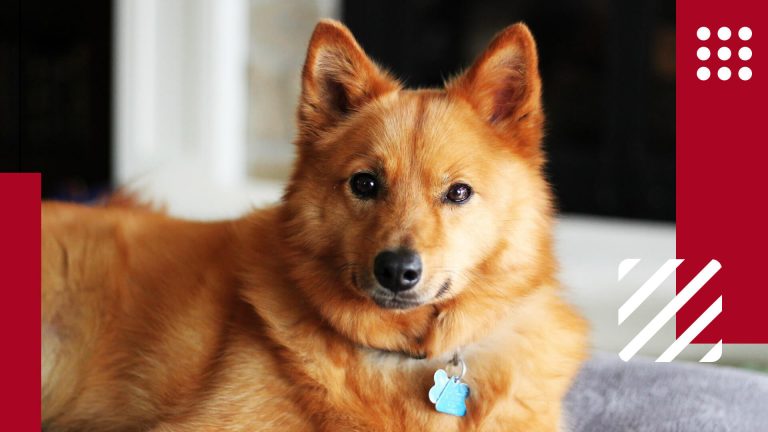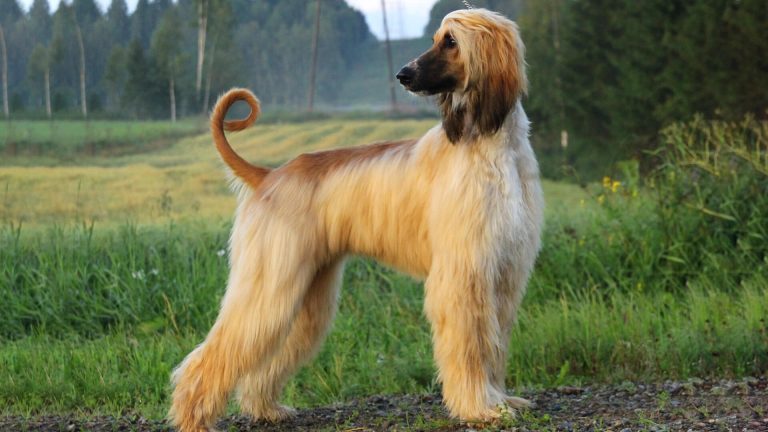The Belgian Tervuren is a breed of dog that originated in Belgium. It is one of four breeds of Belgian sheepdogs, along with the Belgian Malinois, Belgian Groenendael, and Belgian Laekenois. All four breeds were developed in the late 19th and early 20th centuries in Belgium and were originally used for herding sheep and other livestock.
The Belgian Tervuren, also known as the Belgian Shepherd Tervuren, is named after the village of Tervuren, where the breed was first developed. It is a medium to large-sized breed with a distinctive long, thick, and upright coat, which can be fawn, mahogany, or black in color. Belgian Tervurens are known for their intelligence, athleticism, and trainability, and are often used in a variety of roles including as working dogs, search and rescue dogs, and as companions.
Distinctive Features of Belgian Tervuren
| Breed Name | Belgian Tervuren |
| Lifespan | Up to 14 years |
| Size | Up to 26 inches |
| Weight | 55-75 pounds |
| Coat | Long, thick, and weather-resistant |
| Color | Typically mahogany with black overlay |
| Health risk | Moderate |
| Unique trait | Elegant and athletic appearance |
| Famous for | Originally bred for herding and guarding livestock |
| Temperament | Intelligent, alert, and protective |
| Maintenance | Moderate |
| Adaptability | Moderate (prefers active lifestyles and benefits from space to roam) |
| Behavior | Generally good, but supervision is recommended |
| Personality | Active, energetic, and driven |
| Social | May be reserved with strangers, but generally good with proper socialization |
The Belgian Tervuren is a medium to large-sized breed with a distinctive long, thick, and upright coat. The coat can be fawn, mahogany, or black in color, and the undercoat is usually lighter in color. The breed has a muscular and athletic build, with a long head, ears that are set high on the head, and a long, pointed tail.
The average lifespan of a Belgian Tervuren is 12-14 years. Male Belgian Tervurens typically weigh between 55-75 pounds and stand 22-26 inches tall at the shoulder, while females weigh between 35-60 pounds and stand 20-24 inches tall.
In addition to their long, thick coat, Belgian Tervurens are known for their intelligence, athleticism, and trainability. They are active and energetic dogs that require regular exercise and mental stimulation to stay happy and healthy. They are also highly trainable and are often used in a variety of roles, including as working dogs, search and rescue dogs, and as companions.
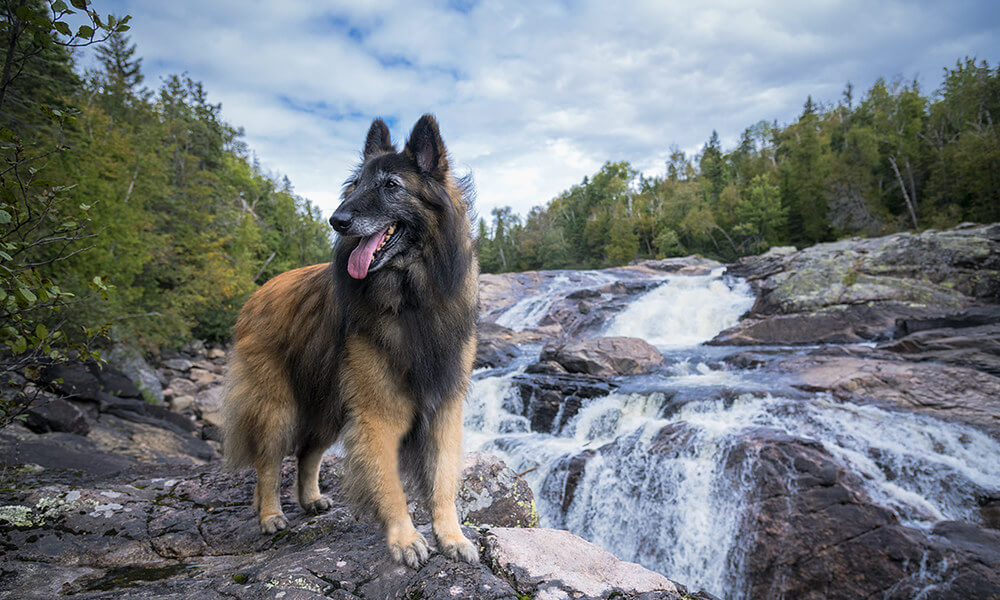
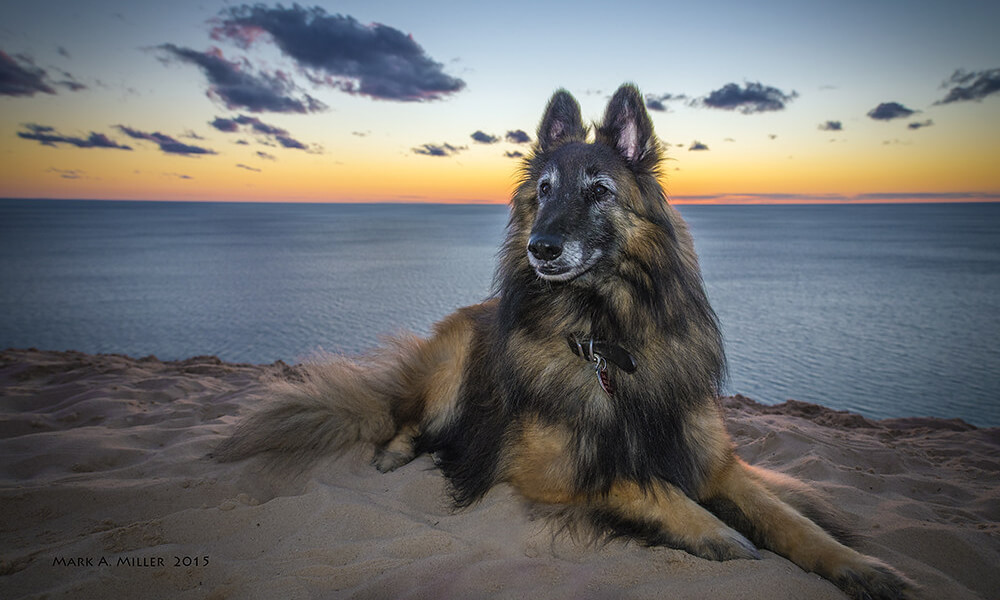
How to Take Care of Belgian Tervuren?
Belgian Tervuren are intelligent and active dogs that require a dedicated approach to their care. They thrive on mental and physical stimulation, so be prepared to provide them with plenty of exercise, training, and attention. Their loyal and affectionate nature makes them wonderful companions, but they also need proper socialization and a strong bond with their owners. When it comes to caring for a Belgian Tervuren, there are several key aspects to consider:
How to Set Up a Habitat for a Pet Belgian Tervuren?
As with any breed, it is important to provide your Belgian Tervuren with a safe and comfortable living environment. Here are some tips for setting up a habitat for a pet Belgian Tervuren:
- Choose a suitable location: Belgian Tervurens are active and energetic dogs, so they will need a spacious area to run and play. Consider setting up a fenced yard or dog run to give your dog a safe and secure place to exercise. If you don't have a yard, make sure to provide your dog with plenty of daily walks and other opportunities for physical activity.
- Provide shelter: Your Belgian Tervuren will need a place to rest and seek shelter from the elements. A doghouse or other weather-proof structure can provide a comfortable place for your dog to rest.
- Provide plenty of toys and activities: Belgian Tervurens are intelligent and energetic dogs that need plenty of mental and physical stimulation to stay happy and healthy. Provide your dog with a variety of toys and activities to keep them engaged and entertained.
What to Feed Your Pet Belgian Tervuren?
It is important to provide your Belgian Tervuren with a high-quality diet to ensure that they are getting all the nutrients they need to stay healthy. Here are some general guidelines for feeding a pet Belgian Tervuren:
- Choose a high-quality dog food: Look for a commercial dog food that is formulated for the specific needs of medium to large-sized breeds and is made with high-quality protein sources like meat or fish. Avoid dog foods that contain fillers like corn or wheat, as these ingredients can be difficult for dogs to digest.
- Follow feeding guidelines: Follow the feeding guidelines on the dog food package, or consult with your veterinarian to determine the appropriate amount of food to feed your Belgian Tervuren based on their age, size, and activity level.
- Offer a variety of protein sources: In addition to commercial dog food, you can also offer your Belgian Tervuren a variety of protein sources such as cooked meat, fish, or eggs. Just be sure to cook these foods thoroughly and avoid adding any seasonings or sauces that could be harmful to your dog.
- Avoid feeding table scraps: It can be tempting to offer your Belgian Tervuren table scraps, but it is generally best to avoid feeding them from your own plate. Many human foods, such as onions and grapes, can be toxic to dogs and could cause them to become ill.
- Keep an eye on your dog's weight: Belgian Tervurens are prone to obesity, so it is important to monitor your dog's weight and adjust their food intake accordingly. Consult with your veterinarian if you have any concerns about your dog's weight.
What to Avoid Feeding Your Pet Belgian Tervuren?
There are certain foods that you should avoid feeding your Belgian Tervuren, as they can be harmful or toxic to dogs. Here is a list of some common foods that you should not give to your pet Belgian Tervuren:
- Chocolate: Chocolate contains theobromine, which can be toxic to dogs and can cause symptoms such as vomiting, diarrhea, rapid breathing, and even death.
- Grapes and raisins: Grapes and raisins can cause kidney failure in dogs, even in small amounts. Symptoms may not appear for a few days after ingestion and can include vomiting, diarrhea, and lethargy.
- Onions and garlic: These vegetables contain compounds that can damage dogs' red blood cells and cause anemia. Symptoms may not appear for a few days after ingestion and can include vomiting, diarrhea, and weakness.
- Avocado: Avocado contains persin, which can cause vomiting and diarrhea in dogs.
- Macadamia nuts: Macadamia nuts can cause tremors, hyperthermia, and weakness in dogs.
- Alcohol: Alcohol can be toxic to dogs and can cause symptoms such as vomiting, diarrhea, difficulty breathing, and even death.
- Xylitol: This artificial sweetener is toxic to dogs and can cause a rapid insulin release, leading to hypoglycemia (low blood sugar). Symptoms may include vomiting, loss of coordination, and seizure.
Keep these potentially harmful foods out of reach of your Belgian Tervuren and to be mindful of any food items that you give your dog. If you are ever in doubt about whether a food is safe for your dog, it is best to consult with your veterinarian.
Brushing, Bathing & Grooming Needs of Pet Belgian Tervuren
Belgian Tervurens have a long, thick, and upright coat that requires regular grooming to stay healthy and look their best. Here are some tips for brushing, bathing, and grooming your pet Belgian Tervuren:
- Brush your dog regularly: Belgian Tervurens have a double coat that requires regular brushing to remove tangles, dirt, and debris. Use a slicker brush or a comb specifically designed for long-haired breeds to brush your dog's coat. Be sure to brush all the way down to the skin to remove any knots or tangles.
- Bathe your dog as needed: Belgian Tervurens do not need to be bathed frequently, as their coat is naturally water-resistant. Bathe your dog every 2-3 months, or as needed if they get dirty or start to smell. Use a mild dog shampoo and be sure to rinse thoroughly to prevent drying out your dog's skin.
- Trim your dog's nails: Belgian Tervurens' nails grow quickly, so it is important to trim them regularly to prevent them from getting too long. If you are not comfortable trimming your dog's nails, you can have a veterinarian or groomer do it for you.
- Clean your dog's ears: Belgian Tervurens are prone to ear infections, so it is important to keep their ears clean and dry. Use a dog-specific ear cleaner and cotton balls to gently clean the inside of your dog's ears. Be careful not to insert anything too far into the ear canal, and stop cleaning if you encounter any resistance or if your dog becomes agitated.
- Brush your dog's teeth: Just like humans, dogs need to have their teeth brushed to prevent dental problems. Use a toothbrush and toothpaste specifically designed for dogs to brush your Belgian Tervuren's teeth at least once a week.
Health Concerns of Pet Belgian Tervuren
It's always essential to consult with a veterinarian for specific health concerns regarding your pet Belgian Tervuren. Here are some health issues that are commonly associated with this breed:
- Hip Dysplasia: Belgian Tervurens may be prone to hip dysplasia, which is a genetic condition where the hip joint doesn't develop properly, leading to discomfort and potential mobility issues.
- Elbow Dysplasia: Similar to hip dysplasia, elbow dysplasia is a condition affecting the elbow joint, causing pain and lameness. It is also a hereditary condition.
- Progressive Retinal Atrophy (PRA): PRA is a group of degenerative eye disorders that lead to gradual vision loss and eventually blindness. It is a genetic condition that can affect Belgian Tervurens.
- Epilepsy: Epilepsy is a neurological disorder characterized by recurrent seizures. Belgian Tervurens can be prone to this condition, which may require medical management.
- Hypothyroidism: Hypothyroidism occurs when the thyroid gland doesn't produce enough thyroid hormone. Symptoms may include weight gain, lethargy, hair loss, and skin issues.
- Allergies: Belgian Tervurens can develop allergies to various environmental factors or specific food ingredients. Allergies may manifest as skin irritations, itching, ear infections, or gastrointestinal problems.
- Bloat (Gastric Dilatation-Volvulus): Bloat is a life-threatening condition that can affect deep-chested breeds like Belgian Tervurens. It involves the stomach filling with gas and twisting, leading to a medical emergency.
- Cancer: Like many dog breeds, Belgian Tervurens can be susceptible to various types of cancer, including lymphoma, mast cell tumors, and bone cancer.
- Canine Degenerative Myelopathy (DM): DM is a progressive spinal cord disease that affects the nerves responsible for controlling movement. It typically begins with hind limb weakness and can eventually result in paralysis.
- Exercise-Induced Collapse (EIC): EIC is a condition characterized by episodes of muscle weakness or collapse during intense exercise or excitement. It is primarily seen in working dogs, including Belgian Tervurens.
Remember, regular veterinary check-ups, a balanced diet, appropriate exercise, and attention to your Belgian Tervuren's overall well-being can help minimize the risk of health issues and promote a happy, healthy life for your pet.
Training and Playing with Pet Belgian Tervuren
Belgian Tervurens are intelligent and highly trainable dogs that respond well to positive reinforcement training methods. Here are some tips for training and playing with your pet Belgian Tervuren:
- Start training early: Belgian Tervurens are highly trainable from a young age, so it is important to start training them as early as possible. This will help your dog learn basic obedience commands and good manners, and will also help strengthen the bond between you and your dog.
- Use positive reinforcement: Belgian Tervurens respond well to positive reinforcement training methods, such as praise, treats, and toys. Avoid using punishment or physical force, as this can lead to fear and aggression in your dog.
- Use a variety of training methods: Belgian Tervurens are intelligent dogs that enjoy learning new things. Use a variety of training methods, such as obedience training, agility training, and tricks, to keep your dog engaged and motivated.
- Play with your dog regularly: Belgian Tervurens are energetic and athletic dogs that need plenty of exercise and playtime to stay happy and healthy. Play fetch, go on long walks or runs, or engage in other interactive activities to keep your dog active and entertained.
- Socialize your dog: Socialization is important for Belgian Tervurens to become well-adjusted and well-behaved dogs. Expose your dog to a variety of people, places, and experiences from a young age to help them learn how to behave in different situations.
Other Pets to Keep or Avoid with Belgian Tervurens
Belgian Tervurens can get along well with other pets, including other dogs and cats, as long as they are properly socialized and trained. Here are some things to consider when deciding whether to keep other pets with your Belgian Tervuren:
- Socialize your Belgian Tervuren: Socialization is important for Belgian Tervurens to become well-adjusted and well-behaved dogs. Expose your dog to a variety of people, places, and experiences from a young age to help them learn how to behave around other animals.
- Introduce other pets slowly: If you are introducing a new pet to your Belgian Tervuren, be sure to do it slowly and under close supervision. Start by allowing the pets to sniff each other through a barrier, such as a gate, and gradually increase the amount of time they spend together as they become more comfortable with each other.
- Consider your Belgian Tervuren personality: Belgian Tervurens are intelligent and highly trainable, but like all breeds, they can have different personalities. Some Belgian Tervurens may be more laid-back and tolerant of other animals, while others may be more energetic and dominant. Consider your dog's personality when deciding whether to keep other pets with them.
- Provide supervision and training: No matter how well-behaved your Belgian Tervuren is, it is always a good idea to provide supervision when they are around other pets, especially when they are young or unfamiliar with each other. Continue to train your dog and reinforce good behavior around other animals to help them learn how to behave appropriately.
Facts About Belgian Tervurens
Here are some interesting facts about Belgian Tervurens:
- Belgian Tervurens are one of four breeds of Belgian sheepdogs, along with the Belgian Malinois, Belgian Groenendael, and Belgian Laekenois.
- Belgian Tervurens were originally developed in Belgium in the late 19th and early 20th centuries to herd sheep and other livestock.
- Belgian Tervurens are named after the village of Tervuren, where the breed was first developed.
- Belgian Tervurens are known for their intelligence, athleticism, and trainability, and are often used in a variety of roles including as working dogs, search and rescue dogs, and as companions.
- Belgian Tervurens are loyal and protective of their families and make excellent guard dogs. They are also known to be good with children when they are properly socialized and trained.
What It's Like to Keep Belgian Tervuren as a Pet?
Here's what it's like to have a Belgian Tervuren as a pet:
Temperament: Belgian Tervurens are intelligent, alert, and highly trainable dogs. They are known for their loyalty, protective nature, and strong work ethic. They are often eager to please their owners and thrive on mental and physical stimulation. Tervurens can be reserved with strangers but are typically affectionate and devoted to their families.
Energy Level: Belgian Tervurens are energetic dogs that require regular exercise and mental stimulation to be happy and well-balanced. They enjoy activities like jogging, hiking, obedience training, and participating in dog sports such as agility or herding trials. Providing them with outlets for their energy is important to prevent boredom and potential behavior problems.
Training and Socialization: Belgian Tervurens excel in obedience training and are quick learners. They respond well to positive reinforcement techniques and enjoy having a job to do. Early socialization is crucial to ensure they grow up to be well-rounded and confident dogs. Exposing them to various people, animals, and environments from a young age helps them develop good social skills.
Living Environment: Belgian Tervurens are best suited for homes with a securely fenced yard where they can safely exercise and explore. They thrive on being close to their families and are not well-suited for long periods of isolation or confinement. Tervurens do best in environments where they receive plenty of mental and physical stimulation.
Ownership Considerations: Belgian Tervurens are intelligent and active dogs that require dedicated owners who can provide them with physical exercise, mental stimulation, and consistent training. They thrive in homes where they are considered part of the family and receive plenty of love and attention. Tervurens may not be suitable for first-time dog owners due to their high energy and training needs.
Frequently Asked Questions About Belgian Tervuren
Here are some frequently asked questions about Belgian Tervurens:
Are Belgian Tervurens good family dogs?
Belgian Tervurens can make great family dogs if they are properly socialized and trained. They are loyal and protective of their families, and they are known to be good with children when they are properly socialized and trained.
How much exercise does Belgian Tervurens need?
Belgian Tervurens are active and energetic dogs that require plenty of exercises to stay happy and healthy. They need a minimum of one hour of exercise per day, which can include daily walks or runs and interactive playtime.
Are Belgian Tervurens easy to train?
Belgian Tervurens are intelligent and highly trainable dogs that respond well to positive reinforcement training methods. They are quick learners and enjoy learning new things, making them relatively easy to train.
Do Belgian Tervurens shed a lot?
Belgian Tervurens have a long, thick, and upright coat that requires regular grooming to stay healthy and look their best. They do shed, but not to the extent of some other long-haired breeds. Regular brushing can help to reduce shedding and keep your dog's coat healthy.
Are Belgian Tervurens prone to any health problems?
Belgian Tervurens are prone to certain health issues, including hip dysplasia, epilepsy, and eye problems. It is important to monitor your dog's health and to visit a veterinarian regularly to detect and address any potential health issues.
Are Belgian Tervurens good guard dogs?
Belgian Tervurens are known to be loyal and protective of their families, and they make excellent guard dogs

